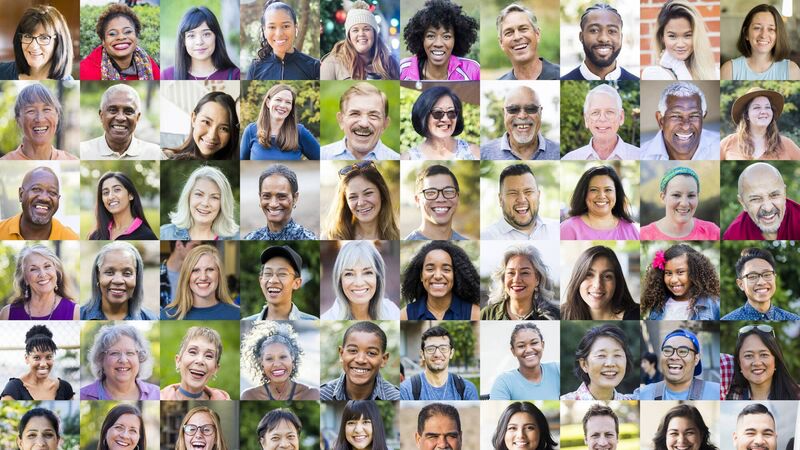Richard Hogan: Connection with other people is as important as food or shelter

Richard Hogan: After a year of disrupted relationships and disconnected familial interactions, we have seen first-hand the importance of healthy and connected relational dynamics. This virus attacked the very thing that binds us, our need for connection.
This week marked the return of 5th-year students to school. After a long cold lonely winter (as the song goes) summer approaches with the promise of so much. Of course, with all this talk of variants and vaccine targets being delayed, we have all looked ahead with reserved optimism. But we can finally begin to see light.
The HSE is moving through its priority list and as of today, nearly everyone over 85 years old has received the vaccine. Also, the infection rate among front-line workers has dropped by 90%. So things are moving steadily in the right direction. There is light at the end of this long Covid tunnel. But the question remains, what sort of world are we returning to? The Greek writer Heraclitus proffers, 'no man ever steps in the same river twice, for it’s not the same river and he’s not the same man.’ When we confidently step outside, and step back into the river of humanity, just who will we be? And what lessons have we learned?
Almost 80 years ago Harvard commenced, what would become, one of the longest studies into adult health and happiness, the Grant Study. There are only 19 of the original cohort still living. Interestingly enough, John F Kennedy was one of the original participants in 1938, obviously, his engagement with the study ended on Elm Street. But what they found over the course of tracking 268 lives is that the health of our relationships and how happy we are in those close relationships has a powerful influence on our own health. After a year of disrupted relationships and disconnected familial interactions, we have seen first-hand the importance of healthy and connected relational dynamics. This virus attacked the very thing that binds us, our need for connection.
In fact, what we have all learned over this year is that connection is not a soft skill, it is as important as food and shelter on Maslow’s Hierarchy of needs. The reason for this lies in our evolutionary past. When we were starting out on this human journey, to be outside our tribe meant certain death. So, to be connected to our tribe was paramount. Therefore our brain developed a highly tuned warning system to alert us to the dangers of being isolated from a group. That’s why isolation actually hurts.
Of course, to find yourself being isolated by a particular group at any age can cause incredible pain no matter who you are. And this is why the Grant Study found a connection to those you love is a prerequisite for a happy and meaningful life.
Yet, before this crisis, many of us didn’t have such a clear understanding of what being excluded meant. Because not all of us experience it, or at least not all of us experience it to the degree some do in society. But we have all experienced exclusion in the last 12 months. So we all know now the vital importance inclusion and connection play in developing a healthy sense of self and a healthy society. So now, as we move out of the ‘hermits cave’ and into, what Wordsworth called, ‘beauteous forms’ let us think about how we include the most vulnerable in society.
Because to truly have empathy, you must have experienced adversity. And we have no excuse. We know the challenge that faces many of our citizens because we have all experienced it. In every challenge, there is the potential for insight and change. I don’t think it’s being idealistic to hope that out of all this chaos, death, and disruption we have the potential to make a more inclusive society, a society that takes its responsibility to all citizens seriously and compassionately.
Over the last year, for the first time in many of our lives we couldn’t go to the places we wanted, we couldn’t travel, we couldn’t socialise with our friends, we couldn’t go shopping and we couldn’t see family members. This is the lived experience of many people on a daily basis, health crisis or not. And their experience is our experience now. So, as we head off into the roaring twenties, out of the shadow of a global health crisis, let’s make this experience have meaning. We lost our way during the Celtic Tiger, but let’s now all work to build a society that is accepting of those who are on the fringes, those who are marginalised and less fortunate than ourselves. That could be the meaning out of all this mess.





